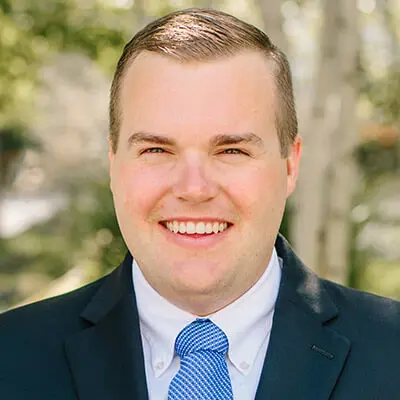Building Financial Confidence with Justin McMurdy
Financial confidence can lead to success and peace of mind. Justin McCurdy talks about how to find it regardless if you’re a saver or a spender!
Listen to us On
About the Episode
We focused on building financial confidence, the planning considerations for savers versus spenders, how to find your financial just right, the role emotions play, and the difference between every-dollar budgeting and reverse budgeting, with Justin McCurdy, Financial Planner with Bridge Financial Planning.
Listen to hear a difference-making tip on the necessity of making plans!
You can learn more about Justin at BridgeFinancialPlanning.com, Instagram, Facebook, and LinkedIn.
Did you get anything out of this episode? Do us a solid and leave a review:
https://ratethispodcast.com/alignedmoneyshow
Learn more and engage at MoneyAlignmentAcademy.com, Twitter, LinkedIn, Instagram, YouTube and Facebook.
Buy George G a coffee (he loves coffee)
https://www.buymeacoffee.com/lifeblood
Have George G speak
https://moneyalignmentacademy.com/speaking/
Financial literacy and wellness for individuals, families, and companies
https://moneyalignmentacademy.com/
Find George G’s books here
The Aligned Money Show is the podcast for Money Alignment Academy, copyright 2024.

George Grombacher
Host

Justin McCurdy
Guest
Episode Transcript
george grombacher 0:02
Justin to get us started. Give me two truths and a lie, please. Alrighty,
Justin McCurdy 0:06
so I think I’m going to stump you here, but we’ll see. First one, I listen to podcasts at two times speed. Second one, I have traveled to five continents. Antarctica and Australia are the two I have not made it to. But they’re on the list. No plans yet. And then the third one is I have two and a half year old triplets, two boys and one girl.
george grombacher 0:32
Those are excellent. Which is the lie. Hmm. We’ve got some good numbers in here. I am going to say that you have not been to five continents.
Justin McCurdy 0:44
Oh, you got me? Three.
george grombacher 0:47
Yes. Well, I saw on your bio that you had triplets. So I knew I knew that one. But so you’ve been to three. Which ones? Have you been to?
Justin McCurdy 0:57
Africa, Europe, and then obviously living in North America? Nice. Where did you go in Africa? went twice Tanzania first, and then South Africa.
george grombacher 1:07
Okay. Nice. And which of our seven continents is next for you?
Justin McCurdy 1:14
I mean, Antarctica is kind of the goal. My grandparents have traveled a lot in their retirement and they eventually got to Antarctica. So to me, that’s the goal is to get there.
george grombacher 1:26
And what will you do when when when you get there?
Justin McCurdy 1:31
They came back with pictures of penguins. I want to see the penguins.
george grombacher 1:34
Like we got off the plane or boat, a plane. There’s a penguin shoot the picture back on the plane? Yes.
Justin McCurdy 1:42
So that’s really the big bucket list trip for some days to make it down to Antarctica.
george grombacher 1:48
Right. So your triplets are two and a half is that right? Two
Justin McCurdy 1:52
and a half. And there are a lot of fun right now. They’re little bundles of joy, talking and learning lots of new words, putting sentences together. So it’s just crazy. The development on the language side right now is really the the big fun. Yeah.
george grombacher 2:08
Yeah, I remember I have three children, seven, four, and an eight month old baby. And I remember before we had kids, I thought, Well, why not just have twins, and just, you know, for lack of a better term, get out of the way. And then I realized what a stupid stupid stupid thought that that was. So to have three at the same time, amazing.
Justin McCurdy 2:28
Well, thankfully, they were our first so we we didn’t know different. And we learned and adapted and adjusted and thankful for all the family support along the way.
george grombacher 2:38
Yeah. Your family local.
Justin McCurdy 2:41
Yeah, both our families are about an hour away so regularly, they get to see them and get their help
george grombacher 2:48
and hand them the children. Yes. All right. Awesome. Well, we could do a whole parenting podcast at some point, Justin, but for today, what’s up? What’s what’s top of mind for you? Yeah, so
Justin McCurdy 3:01
working with people spanning from early career all the way to retirees get to see people at all different stages, and all different phases of life paying off debt, job transitions, starting pensions, Social Security, taking their required distributions. And really, in that one of the themes that that comes out, and that I’ve seen prevalent a lot recently, both working with clients, and in some of kind of the thought leaders in the industry. You know, kind of this dichotomy between living for today versus living for tomorrow, which you can kind of also say spending versus saving is maybe an easier way to think about it. So I think it’s just become very prevalent to see those challenges that people have at all stages with that dichotomy. of, you know, whether they’re just starting out in their career, or they’re retiring, they’re struggling with one end or the other, you know, there’s, there’s the two extreme ends and everybody falls somewhere in the middle. But I think a lot of us have a bent towards one way or another. Like personally, I know that I lean towards that saving side, I know that that’s my bent and some of that probably comes from being a financial planner, and being in this and seeing the benefit of doing that. But my wife helps me balance out a bit and spend a little bit and be willing to live in the present. So that’s one of the things that I’m really seeing and seeing top of mind and that we’re working through with clients and clients are struggling through those feelings and the emotions and the security of saving on the retiree side of having saved for so long built up a portfolio to be in a position to retire. It’s hard to start that transition and flip that switch to I’ve done all this work. How do I now go and start Spend it start to enjoy it, start to travel, whatever their values and their goals may be with their money. And getting that switch from just saving and accumulating to actually enjoying life. And I think on the opposite end of the spectrum, the younger people, young professionals in transition and such, are struggling with that too. And not all of them are struggling with it in the same way, but struggling a little bit more with, we want to spend, you know, we’ve spent all this time in college, or we’ve gone to graduate schools to get to this point where we’re making money. And so there’s a strong poll, typically towards spending and wanting to live in the present. And saving is a part of that, and sometimes an afterthought, though. So I think there’s this push towards, how can we enjoy life as we’re going through it and not just delay and wait till retirement, to do all the things we’ve held off doing? And one of the words or phrases that comes to mind that I’ve heard is kind of consumption, smoothing? How do we spread out our consumption and make it closer to level versus consuming and saving some of that consumption or some of that travel or giving, or just enjoying eating out whatever it may be, and enjoy that along the way, while also making sure to make smart decisions, and be intentional about saving for ourselves in the future. And I’m sure every advisors got their story of somebody whose life ended shortly and ended abruptly where they didn’t get to do that. So I think that drives a lot of that conversation to have being in the adviser seat, seeing people who don’t spend and don’t actually get to enjoy that or choose not to for whatever reason.
george grombacher 7:02
Is that really, that’s one of the key pieces of value that you bring as an advisor, it’s helping. Those are great terms. I wrote down hedonism versus asceticism, and then you said consumption smoothing. That’s awesome. I’ve never heard that before. But yeah, it’s FOMO. It’s YOLO. It’s, I’ve saved all this money. Now, I don’t want to spend any, so I’m older, and I’m not going to spend any of it. And I’m going to live hand to mouth and eat, you know, sparingly. Do you think that that’s really, that’s a big piece of value that you’re delivering?
Justin McCurdy 7:36
I think it is because we get to help people on both ends of that give them the confidence to spend, or be the bad guy in the room and say, Hey, let’s cut back a little bit, you need to be saving a little bit more, so that you have some flexibility down the road and have a retirement down the road if that’s what you desire. And it ultimately all ties back to everybody’s got their own individual values, and goals and dreams and desires for their money. And the more that, as a planner, we can understand what that is helps us to better help the client align what they’re doing with what they want to see done and with those values with those goals. Because everybody’s life is different. And that’s the beauty of it. And part of the fun of being a financial planner is that every circumstance is different. But the similarities and similar techniques or tactics. But everybody’s got their own story. And they’re writing that story.
george grombacher 8:35
Yeah, really well said. So the competence to spend. That one certainly makes a lot of sense to me. Where I’m 70 years old, I’ve retired and I’ve got plenty of money. I did an awesome job saving, hey, you can spend you can you can go out to eat, you can travel you can do those things that you probably wanted to do, but you don’t want to run out of money. I get it. And I also don’t imagine that young people are coming to you and you’re having to twist their arm to save because they’re engaging with a financial professional or or am I wrong about that?
Justin McCurdy 9:11
Yeah, I haven’t thankfully had to have too many conversations of, hey, this spending is getting out of hand or is out of hand. I think give it a little bit more of
Hey, sorry, I think the internet dropped there.
george grombacher 10:35
Nope, no problem at all. So if you’re comfortable picking up and kind of getting the just re answering the question of, you’re not having to twist people’s arm. Sounds
Justin McCurdy 10:47
good. Whenever you’re ready, is recording on? Yep. Okay. So thankfully, I haven’t had to have too many scenarios where I’m having to really twist somebody’s arm and say, Hey, you’re spending way too much you need to cut back significantly. I think on the younger side, it’s more about stepping in and walking through them. With them in that stage where their incomes are growing, they’re having more flexibility to spend, and helping them not get caught up fully in lifestyle creep. And really to set the foundations early on of prioritizing saving to an extent and knowing what you can then spend. I think that’s where it ends up being on the younger end. And monitoring expenses and making sure that that lifestyle, creep doesn’t get out of hand, because it it starts to for some people, and it’s easy to you got inflation, you want to do more you have kids come along, like your expenses just go up over time to some extent. But really, I think the impact of being able to work with people early on is you get to stop it before it becomes a problem. And before you have to go and say you need to cut spending by X number of dollars a month. And it’s much harder to cut that back then over time to say, Okay, go ahead and start spending more, live a little bit more go out to eat more, you know, upgrade your airline ticket when you’re going on on a flight, whatever it may be. So, no twisting arms, thankfully,
george grombacher 12:28
thankfully, it’s really tough to to put austerity measures into place you think about just like say, theoretically speaking, a government was just spending money, like there’s no tomorrow and racking up massive debts, all of a sudden, to change gears and to trim back and to tighten your belt is a really, really hard thing for a country. But that also also for an individual or a household. So I totally get that and put some good habits in place. You know, from the get go, you really, I don’t want to say you guarantee your success, but you certainly position yourself for success.
Justin McCurdy 13:03
Right. And that’s what it’s about is positioning yourself for success based off of what you know, in the current time period. You know, the famous quote, you know, there are two things that are certain in life, death and taxes, all the other variables that we’re working with, and talking through with clients, there’s going to be changes, there’s going to be life events, positive and negative, that are going to impact what’s done. And, you know, we like to say the financial plan is pretty much out of date, the moment you know, we’ve saved the document, because something has changed. So it’s an evolving process. And that’s what’s really fun about working with people over longer periods of time is you get to see that evolve and see their thinking and their thoughts and their goals and dreams evolve as they get further along. And as they have kids or decide not to have kids intentionally. You get to kind of see see the evolution of the work. And they’re, they’re a piece of that. Yeah,
george grombacher 14:03
yeah. Fascinating. Imagine, put yourself in the shoes, you are a financial advisor, which isn’t that much of a stretch, and you’ve got a new couple that you’re working with husband and a wife and they are expecting. And so you’re planning and planning and planning for one child and all of a sudden it turns out they’re having two or three. How do you how do you plan for that? Justin?
Justin McCurdy 14:28
Well, first stop, do you have to process all that information because it takes time to realize that that’s truly what’s happening? You know, and then it’s similar to having one child you just got to start preparing for those known expenses. You know, you’re gonna have deductibles, you know, medical bills, et cetera. You’re going to have to buy a crib, buy clothes, you know, all those types of things. Most people get lucky and have showers and and such that help with that. I think from the triplet perspective, you really got a lineup help. And I even see with single 10 Babies lining up help and having family and friends close, who are supportive, goes a long way. And that’s not a financial thing. But that’s a life life thing that is important to have that community around you to support you. Yeah, and from a financial perspective, start saving early though, three in college at one time is, is potentially a big expense. So the sooner you start saving for that, the longer it has to accumulate and compound. So there
george grombacher 15:38
you go. I remember, you want to freak somebody out to show him the price of college in 18 years on current inflation numbers. So
Justin McCurdy 15:47
yeah, those are not pretty numbers to, to look at and to comprehend. But things may change between now and then just like I said earlier, there’s there’s going to be things outside of our control, positive and negative. And so you adapt and adjust and work with what is known or reasonably assumed, at a point in time.
george grombacher 16:10
So when you get that, and it for lack of a better term, that punch in the gut, like, Oh, my goodness, how are we going to afford all of this? That can certainly have the effect of having me crawl into shell and Nana, Nana, Nana, Nana, and that’s not healthy.
Justin McCurdy 16:28
Yeah, it’s not, but having somebody like a financial planner to talk through and model out scenarios, even though they’re not going to be completely accurate can help you start to just have peace or understand the decisions you need to make about saying, yes, we want to fully fund college or, you know, maybe we just want to help a little bit and be supportive of it. So there’s, there’s levers you can pull in, everything doesn’t have to be a yes or no, you can find a middle ground of getting some of the Yes, but also not going 100% there. And I think that that ties back to the whole idea of saving versus spending. You don’t have to be at the extreme, you can find a middle ground of thinking about tomorrow, saving for tomorrow, intentionally. And spending and enjoying life along the way going on those trips or spending on the dining out whatever it is that you want to be spending on and brings you satisfaction and joy in life.
george grombacher 17:32
How do you I’m sure it’s on an individual case by case basis with your clients. Do you do you build in just let’s let’s let’s build in fun into it or just a whatever you want fun kind of a thing?
Justin McCurdy 17:50
Yeah, it depends client by client, some people are a little bit more strict and want to tighter budget that they follow or track everything. Other people are a little bit looser with it and say, Let’s take care of the spending. And we’re the saving, and we’re going to spend the rest that’s kind of called reverse budgeting. So it depends on the client and what works for their circumstances. And for what they want to achieve and how they want to achieve it.
george grombacher 18:15
Tell me a little bit more about the reverse budgeting. Yeah, so
Justin McCurdy 18:19
the reverse budgeting is kind of this concept that basically, you start a little bit more at taking care of the big items that you know, you need to take care of including that saving, and then you give yourself the freedom to spend what’s left. And so instead of the opposite, where you allocate where every dollar is going and have the specifics and kind of what’s left, or what isn’t being spent towards a specific expense is what saved, you kind of flip that around, save first, then spend and don’t have to worry about what’s going to be left or if anything’s left,
george grombacher 18:57
do you find that that a saver or a spender gravitates towards more of an every dollar or a reverse budgeting strategy.
Justin McCurdy 19:08
I can’t say that I’ve found a strong correlation or connection, I would say generally my assumption there would be the spenders are probably going to be more on the reverse budgeting side. They just want to know what they can spend or know that they’re okay spending it. And the Savers probably tend towards a little bit more line item traditional budgeting they want to see where every dollar is going and want to understand it and try to keep themselves within within their limits. Yeah,
george grombacher 19:36
yeah, it’s interesting. My wife keeps our budget for our household even though I’m the financial person and I am. I’m more comfortable with the reverse budgeting approach but she’s more comfortable with the with the every dollar. So it’s an interesting thing.
Justin McCurdy 19:50
Yeah, and it’s dynamics couples have to have to work through and find what works for them. And you know, same with the saving versus spending they’ve got To find that balance, if one’s a saver, one’s a spender, you’ve got to come to come to a balance and an agreement that you can both work on that is going to allow you both to flourish in your marriage and flourish financially.
george grombacher 20:13
Yeah. We talked about you talked about confidence and and how as soon as you hit save, or whatever it might be on the financial plan that it’s no longer you know, totally correct. But, and that you don’t want to let perfect be the enemy of the good, and that you’ve done a plan, we’re going to update it, you should feel great about this.
Justin McCurdy 20:39
Yeah, definitely. And that’s why in the work we do, we tend to be conservative, and, you know, give wiggle room in the plan. Because, you know, going back to, it’s easier to tell somebody you can spend more than to tell somebody, hey, the projections were way high, you’ve got to cut back. And a lot of that ties to psychology, and there’s lots of underlying things going around with money and feelings. And there’s a lot of emotion tied to it. But you know, we tend to go on the conservative side, because that just gives us wiggle room over Yeah.
george grombacher 21:13
Well, that makes a lot of sense. What, is there anything that just drives you nuts? Like why do people keep doing this?
Justin McCurdy 21:25
Not necessarily. You know, there’s, I mean, maybe one thing is when people just keep putting money on credit cards and not paying them off. That drives me nuts. It’s just never a winning strategy.
george grombacher 21:38
No, no, that is not a winning strategy at all. And it’s so easy to do. Just yeah, I can just I have them. I can buy whatever I want and have it arrive immediately. I guess that’s probably more of the savers.
Justin McCurdy 21:50
Yes.
george grombacher 21:54
I think we can confidently say that. I like it. Well, Justin, we’re ready for that difference. Bakey tip, what do you have for us?
Justin McCurdy 22:00
Yeah, so my tip is be honest with yourself. First and foremost, understand where you’re at, on that continuity around that continuum saving versus spending today versus tomorrow. Whatever words make sense in your head, understanding where you’re at, and your own biases there. And if you feel like you’re strongly towards one end or the other, take a move to move a little bit towards the middle. If you’re as if you’re a saver, take a small step and start spending a little bit if you’re a spender, take a small step and start saving a little bit, even $100 a month. Take a small step, it can make a big impact over time.
george grombacher 22:42
Well, I think that that is great stuff that definitely gets a Come on. Life is all about just those small steps in that next step, Justin, and finding that just right, things are too hot or too cold. Let’s find that just right. Sure that you’ve read that story to your children. Yes. I love it. Well, Justin, thank you so much for coming out. Where can people learn more about you? How can they engage with you?
Justin McCurdy 23:07
Yeah, so thanks for having me on. business wise, you can find us at bridge financial planning.com. And we’ve got links to schedule meetings and consultations and such. And then I’m a little bit active on LinkedIn, not a time. But that’s another way to connect with me. Excellent.
george grombacher 23:23
Hope you enjoyed this as much as I did. So just in your appreciation, share today’s show with a friend who also appreciates good ideas, go to bridge financial planning.com and check out the great resources and find a time to set up a time to have a conversation with Justin, as I’m sure that what he talked about resonated with you as it did with me could find them on LinkedIn as well certainly link all of those in the notes of the show. Thanks again, Justin. Thank you. Finally, a friendly reminder, never going to be anybody more interested in your financial success than you are. So act accordingly.
More Episodes
How to Make Sure You Don’t Outlive Your Retirement Nest Egg — With the Help of Annuities
One of the biggest fears facing retirees today isn’t boredom, health issues, or even the rising cost of living. It’s the fear of outliving their money. And it's a valid concern. With people living longer, markets remaining unpredictable, and inflation eating away at...
How to Have an Anxiety-Free Retirement Using Budgeting and Annuities
Retirement should be a time to relax, explore your passions, and enjoy the life you've worked so hard to build. But for many retirees, financial anxiety can cast a long shadow over those golden years. One of the most effective ways to manage this anxiety is through...
How to Manage Financial Uncertainty and Anxiety in Retirement Using Annuities
Retirement is meant to be a time of relaxation, freedom, and enjoyment. But for many retirees, it can also bring anxiety and uncertainty—especially about finances. Concerns about outliving savings, market volatility, rising costs, and unpredictable healthcare expenses...
How to Handle Inflation on a Fixed Income in Retirement
Inflation is one of the biggest threats to a comfortable and sustainable retirement. As prices for everyday goods and services increase over time, the purchasing power of your money decreases. For retirees living on a fixed income, this can be especially challenging....
Finding Safety in Retirement with Annuities
Planning for retirement is one of the most significant financial journeys a person takes. While retirement is often envisioned as a time of relaxation and enjoyment, many people face the looming question: "Will my money last?" With market volatility, rising healthcare...
Using Annuities to Overcome the Fear of Spending Too Much in Retirement
One of the biggest concerns for retirees is striking the right balance between enjoying their savings and making sure they don’t run out of money. The fear of spending too much too soon can lead to financial anxiety, limiting a retiree’s ability to fully enjoy their...
Why Investors Choose Annuities for Secure Retirement Income
Planning for retirement is one of the most critical financial decisions a person will make. With concerns about market volatility, longevity, and sustainable income, many investors turn to annuities as a solution for secure retirement income. But what makes annuities...
Using Annuities to Create Tax-Efficient Income in Retirement
One of the biggest challenges in retirement planning is managing taxes effectively. Many retirees focus on accumulating wealth but overlook the impact of taxes on their income. Without a well-structured strategy, taxes can eat into your retirement savings and reduce...
How to Overcome the Fear of Running Out of Money in Retirement with an Annuity
One of the most common fears among retirees is running out of money. After working for decades, the last thing anyone wants is financial insecurity during their golden years. The fear of outliving your savings can be paralyzing, leading to stress and uncertainty....
Join the show.
Interested in being on the show? Tell me a little bit more about you and what you’d like to talk about!














